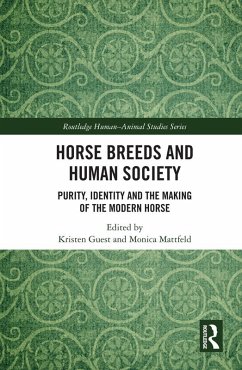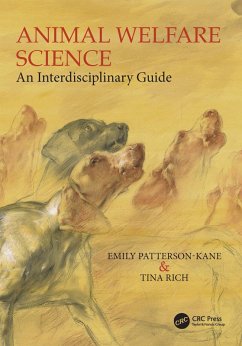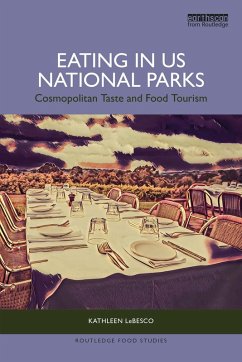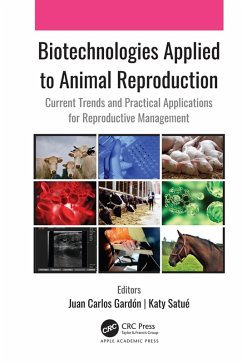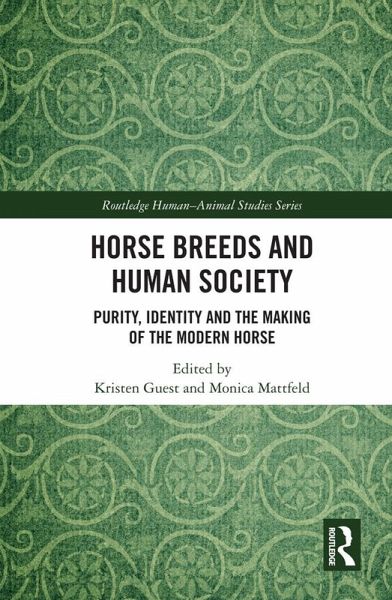
Horse Breeds and Human Society (eBook, PDF)
Purity, Identity and the Making of the Modern Horse
Redaktion: Guest, Kristen; Mattfeld, Monica

PAYBACK Punkte
21 °P sammeln!
This book demonstrates how horse breeding is entwined with human societies and identities. It explores issues of lineage, purity, and status by exploring interconnections between animals and humans.The quest for purity in equine breed reflects and evolves alongside human subjectivity shaped by categories of race, gender, class, region, and nation. Focusing on various horse breeds, from the Chincoteague Pony to Brazilian Crioulo and the Arabian horse, each chapter in this collection considers how human and animal identities are shaped by practices of breeding and categorizing domesticated anima...
This book demonstrates how horse breeding is entwined with human societies and identities. It explores issues of lineage, purity, and status by exploring interconnections between animals and humans.
The quest for purity in equine breed reflects and evolves alongside human subjectivity shaped by categories of race, gender, class, region, and nation. Focusing on various horse breeds, from the Chincoteague Pony to Brazilian Crioulo and the Arabian horse, each chapter in this collection considers how human and animal identities are shaped by practices of breeding and categorizing domesticated animals.
Bringing together different historical, geographical, and disciplinary perspectives, this book will appeal to academics, as well as undergraduate and postgraduate students, in the fields of human-animal studies, sociology, environmental studies, cultural studies, history, and literature.
The quest for purity in equine breed reflects and evolves alongside human subjectivity shaped by categories of race, gender, class, region, and nation. Focusing on various horse breeds, from the Chincoteague Pony to Brazilian Crioulo and the Arabian horse, each chapter in this collection considers how human and animal identities are shaped by practices of breeding and categorizing domesticated animals.
Bringing together different historical, geographical, and disciplinary perspectives, this book will appeal to academics, as well as undergraduate and postgraduate students, in the fields of human-animal studies, sociology, environmental studies, cultural studies, history, and literature.
Dieser Download kann aus rechtlichen Gründen nur mit Rechnungsadresse in A, B, BG, CY, CZ, D, DK, EW, E, FIN, F, GR, HR, H, IRL, I, LT, L, LR, M, NL, PL, P, R, S, SLO, SK ausgeliefert werden.




